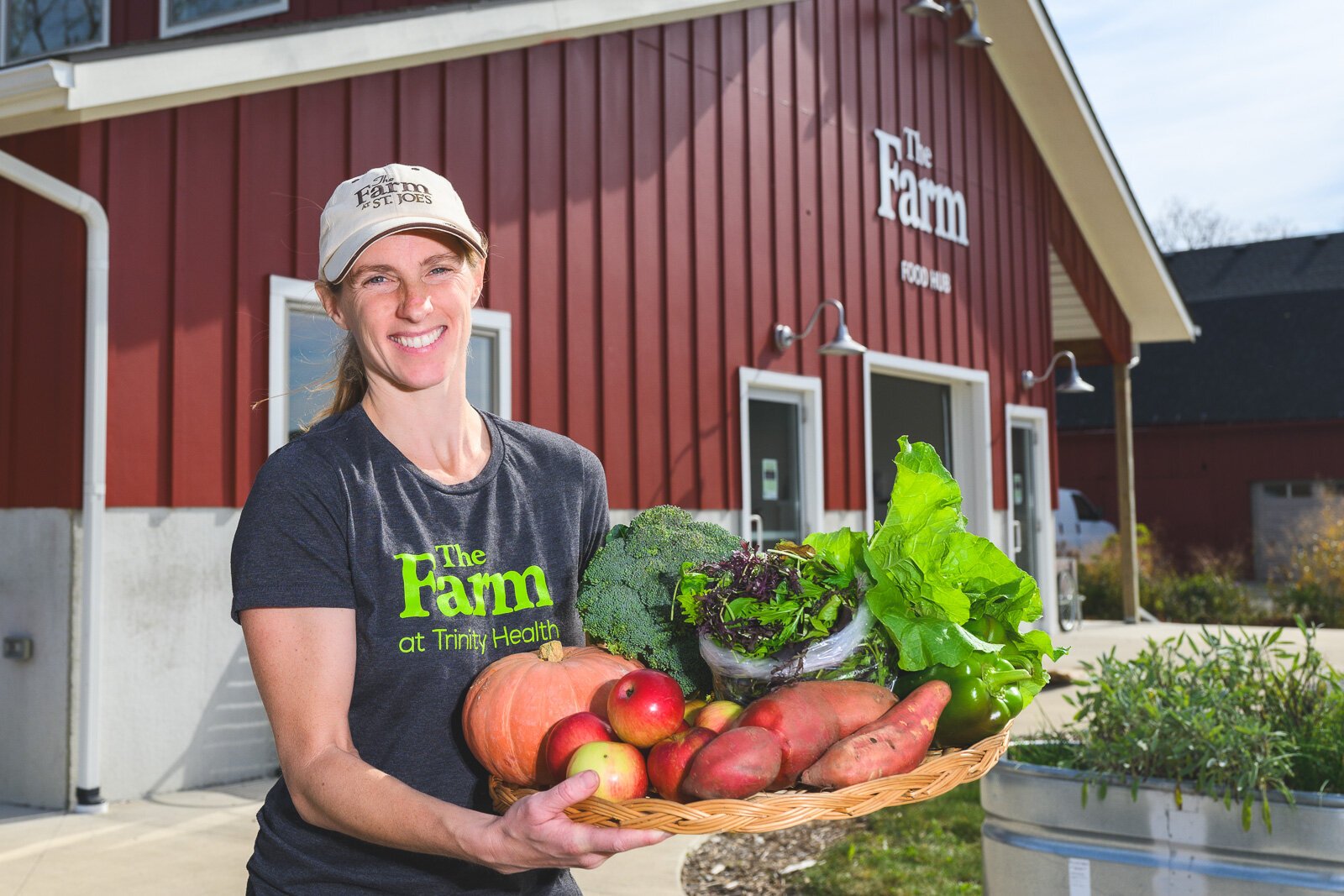
Michigan is seeking approval for a new funding structure that could use Medicaid dollars to pay for programs that offer "prescriptions" for free fresh fruits and vegetables.
This article is part of State of Health, a series about how Michigan communities are rising to address health challenges. It is made possible with funding from the Michigan Health Endowment Fund.
Produce prescription programs, which offer vouchers for free fresh produce, have a long history in Michigan, but sustaining them has often been challenging due to their short-term philanthropic funding. Despite these programs’ proven value to consumers with chronic diseases, and their benefits for local farmers and farmers markets, many of them have very short lifespans. However, a new Medicaid funding structure could help Michigan expand its produce prescription programs and create a more sustainable mechanism to pay for them.
Medicaid now allows an in lieu of service (ILOS) approach, meaning Medicaid-managed care organizations can offer non-traditional health care programs as long as they show health benefits and cost effectiveness. Currently, the Michigan Department of Health and Human Services (MDHHS) is seeking federal approval for four ILOS programs, including produce prescription programs. Because many produce prescription program participants have Medicaid coverage, Medicaid funding for the programs seems like a match made in heaven. Hopes are that this new funding stream will help thousands of income-challenged Michiganders with diet-related health issues access nutritious foods.
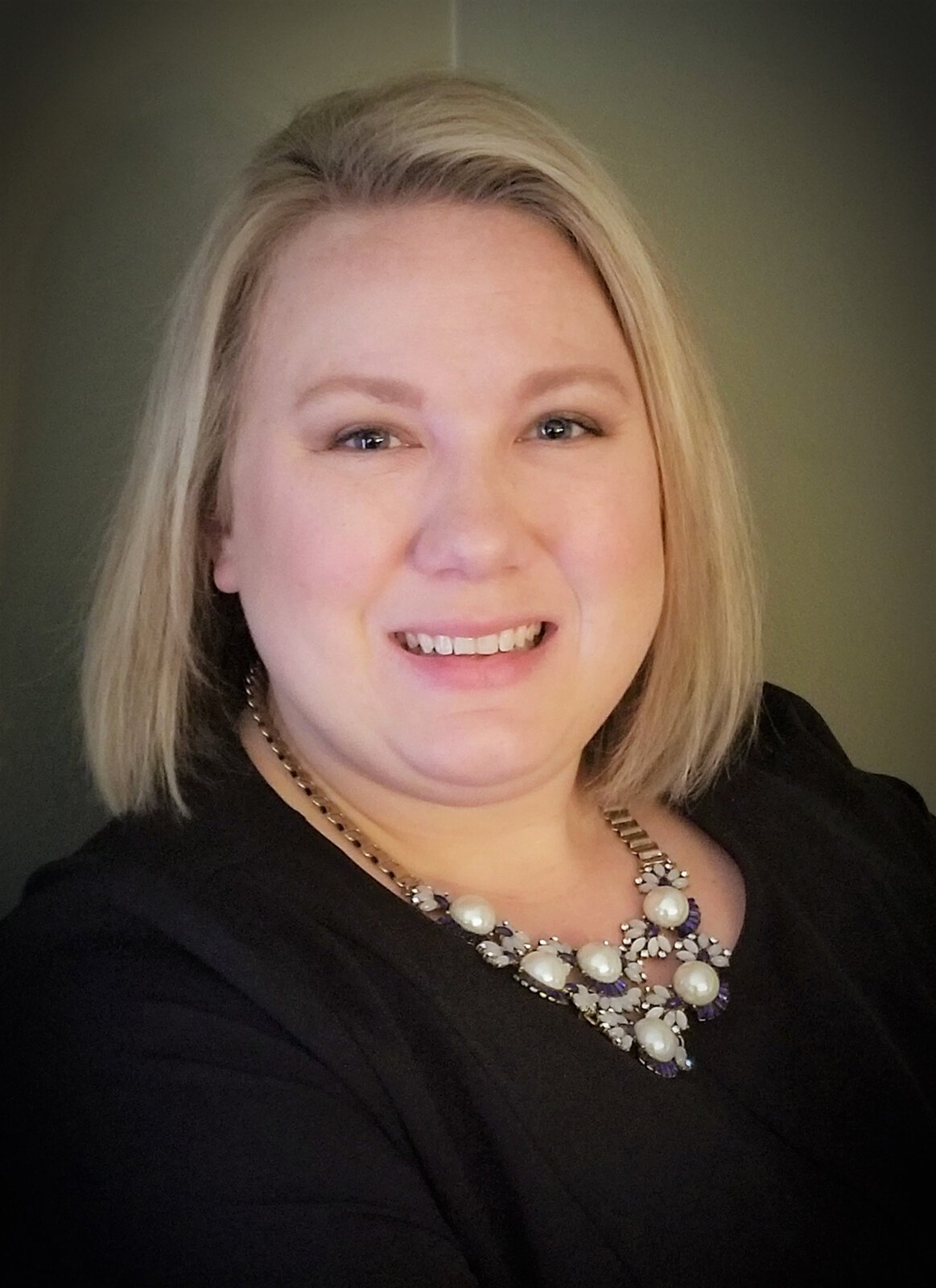
Katherine Commey.
“One of our primary goals in Medicaid is to improve access to health care services [and] improve the health and wellbeing of eligible individuals and families,” says Katherine Commey, MDHHS manager in the Michigan Medicaid Office of Strategic Partnerships and Medicaid Administrative Services. “The produce prescription programs align with that goal by addressing food insecurity, social determinants [of] health, and improving nutritional access to the population that are at higher risk for chronic conditions.”
As a partner in the Michigan Farmers Market Association‘s (MIFMA) Produce Prescription Statewide Learning Network, the Michigan League for Public Policy (MLPP) advocates for Medicaid funding for produce prescription programs.
“Obviously, it will help alleviate food insecurity among people for whom it’s most important to have the proper nutrition because they’re facing some serious health issues,” says Julie Cassidy, MLPP senior policy analyst. “I think we will see improved health outcomes.”
Commey says produce prescription programs also support preventative care by mitigating diet-related chronic conditions like obesity or diabetes.
“Furthermore, these programs and other nutritionally focused services address barriers that disproportionately affect [people], particularly those in underserved communities,” she says. “We’re really excited and looking forward to federal approval to support the communities.”
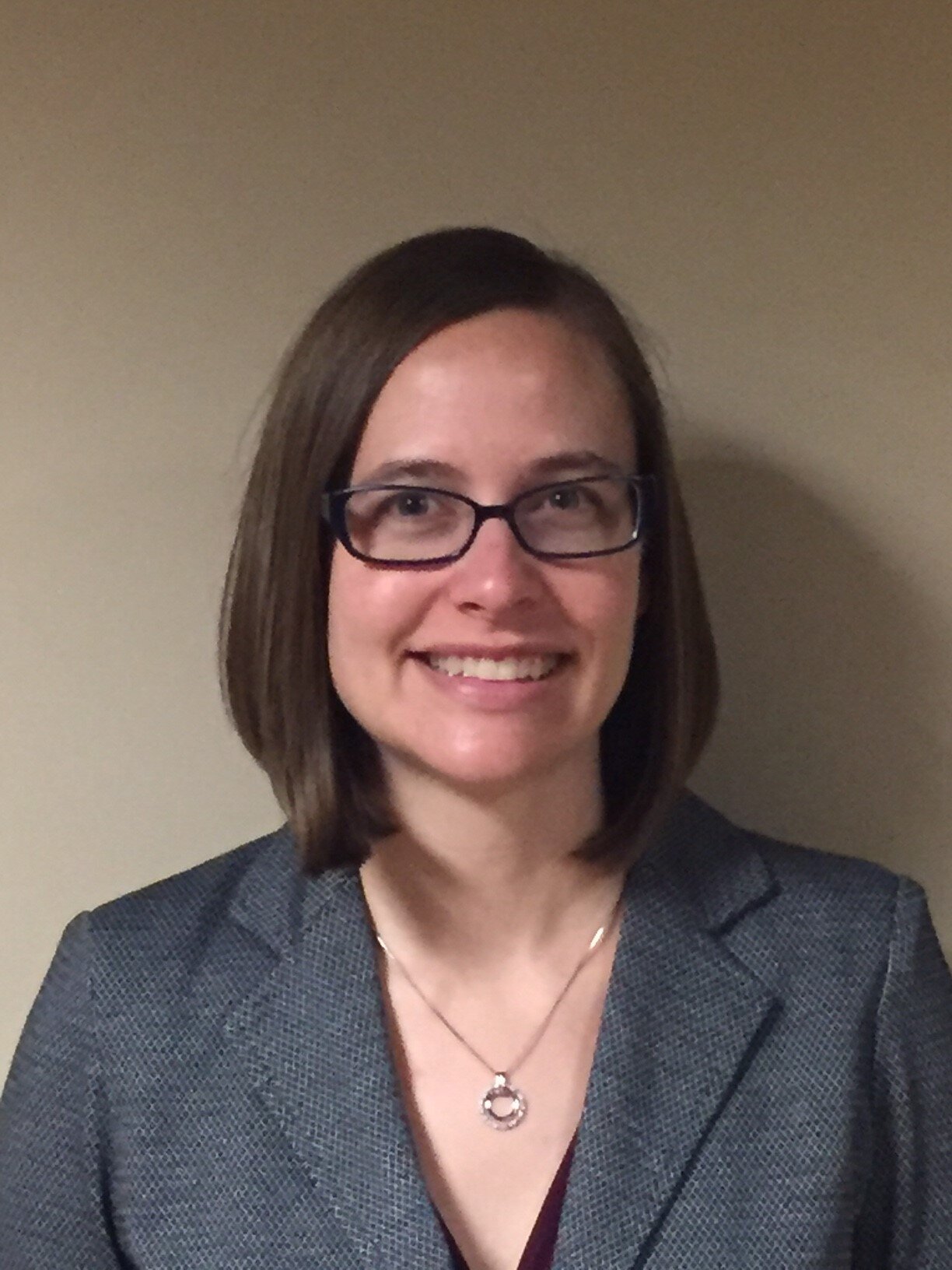
Julie Cassidy.
For children, Cassidy notes that research has shown that eating fresh fruits and vegetables can also reduce the frequency of asthma attacks and hospitalizations for asthma. And eating vegetables rich in iron, Vitamin C, and calcium can help protect children from lead poisoning.
“This is why nutrition supports have become a key part of response to the Flint water crisis,” Cassidy says. “There are a number of ways that people are going to see a direct benefit to their health, and it supports greater economic security. A lot of families are struggling with the high cost of housing. When budgets are tight, food is usually the first thing to get cut, because it’s the quickest and easiest way for a family to reduce their spending.”
According to Cassidy, programs using Medicaid dollars to purchase healthy food also have the potential to boost local economies. Every $1 redeemed in SNAP benefits generates more than $1.50 in economic activity, much of which stays in the community. Michigan’s Double Up Food Bucks program, which is now being replicated in a number of other states, has benefits that ripple out to all parts of the local food system.
“It’s not just the farmers markets and grocery stores where people would get the food that’s ‘prescribed’ to them,” Cassidy says. “Programs like these support growers, food processors, truckers — there is a synergy that can stem from a really small interaction in the doctor’s office.”
Supporting local growers and nonprofits
Before launching, organizations that offer produce prescription programs through Medicaid would have to overcome some steep bureaucratic barriers. Farmers markets and community-based organizations “filling” prescriptions will have to significantly build capacity to increase their programs’ scale and adhere to regulatory requirements.
“There’s concern that a lot of the community-based organizations that would be partnering with Medicaid health plans to deliver the services may not currently have the capacity in terms of staffing and administrative infrastructure to do it,” Cassidy says.
Dawn Opel, chief innovation officer and general counsel for the Food Bank Council of Michigan, agrees.
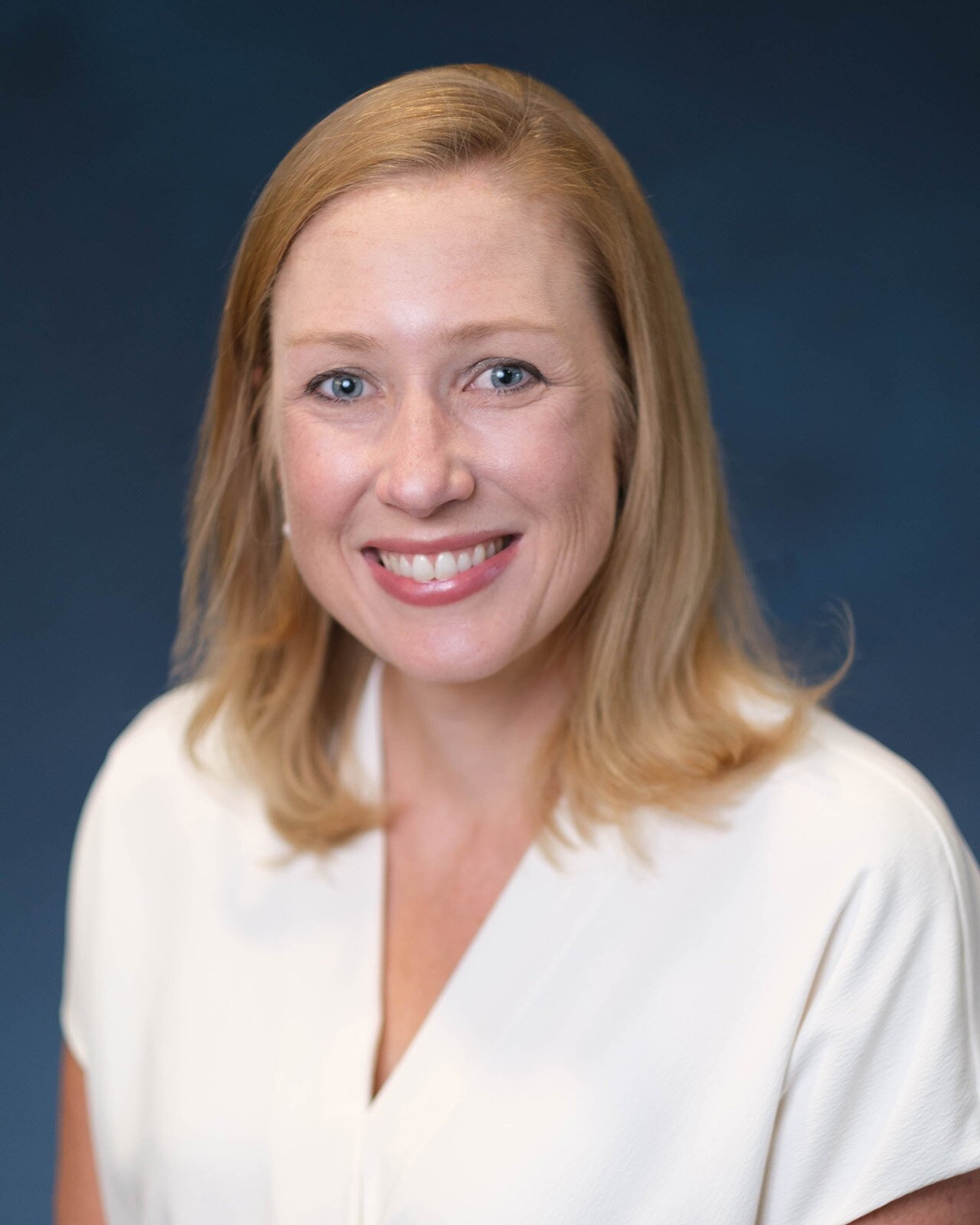
Dawn Opel.
“[If] that’s going to bring more food resources to the folks who need it most, that very low-income population, that’s going to be good. However, this is a very different program to administer and to operate,” she says. “This requires so much new infrastructure capacity-building that is going to be expensive for food banks and might harm them if they invest too much money and then aren’t able to break even, or if they lose money.”
Based on how similar programs in other states have operated, Opel fears that instead of boosting local food systems, organizations operating the programs will look to national commercial vendors that already have the necessary infrastructure. And the further away the source of fresh produce is, the less nutritional value it offers.
“To strengthen the local food economy, the local food system, to work with Michigan-based producers, vendors, and retailers, that’s really important, too,” Opel says. “We really want the goal to be for local nonprofits to build their own capacity, to serve more Michigan residents, and hopefully to purchase more Michigan products and work with more local farmers. It’s a little bit tough because Medicaid is a reimbursement program. We have to raise those startup dollars to get local nonprofits ramped up to work at this scale.”
“Medicaid dollars would definitely take up a big chunk and alleviate some of the burdens that are associated with having to consistently find new funding sources on an annual or biannual basis for many of our produce prescription programs in Michigan,” says Bella Pagogna, MIFMA produce prescription manager. “Partnering with Medicaid definitely comes with its own barriers of entry. However, it showcases the need for investment from all sides on these programs – from the state, Medicaid-managed care plans, and produce prescription program implementers.”

The Michigan Farmers Market Association’s produce prescription team: Produce Prescription Manager Bella Pagogna, Programs Director Ashley Wenger, and Executive Director Amanda Shreve.
Pogogna and others who have been advocating for Medicaid-funded produce prescription programs are working with MDHHS to ensure local farms and farmers markets continue to benefit from the programs. Currently, three-quarters of Michigan produce prescription programs partner with local agricultural retailers such as farmers markets or food box programs sourced from local farmers.
“We’re really excited that within the policy that MDHHS released, they put a strong emphasis and really encourage partnerships with local and regional food systems and retailers that operate within Michigan’s local food economy,” says MIFMA Programs Director Ashley Wenger.
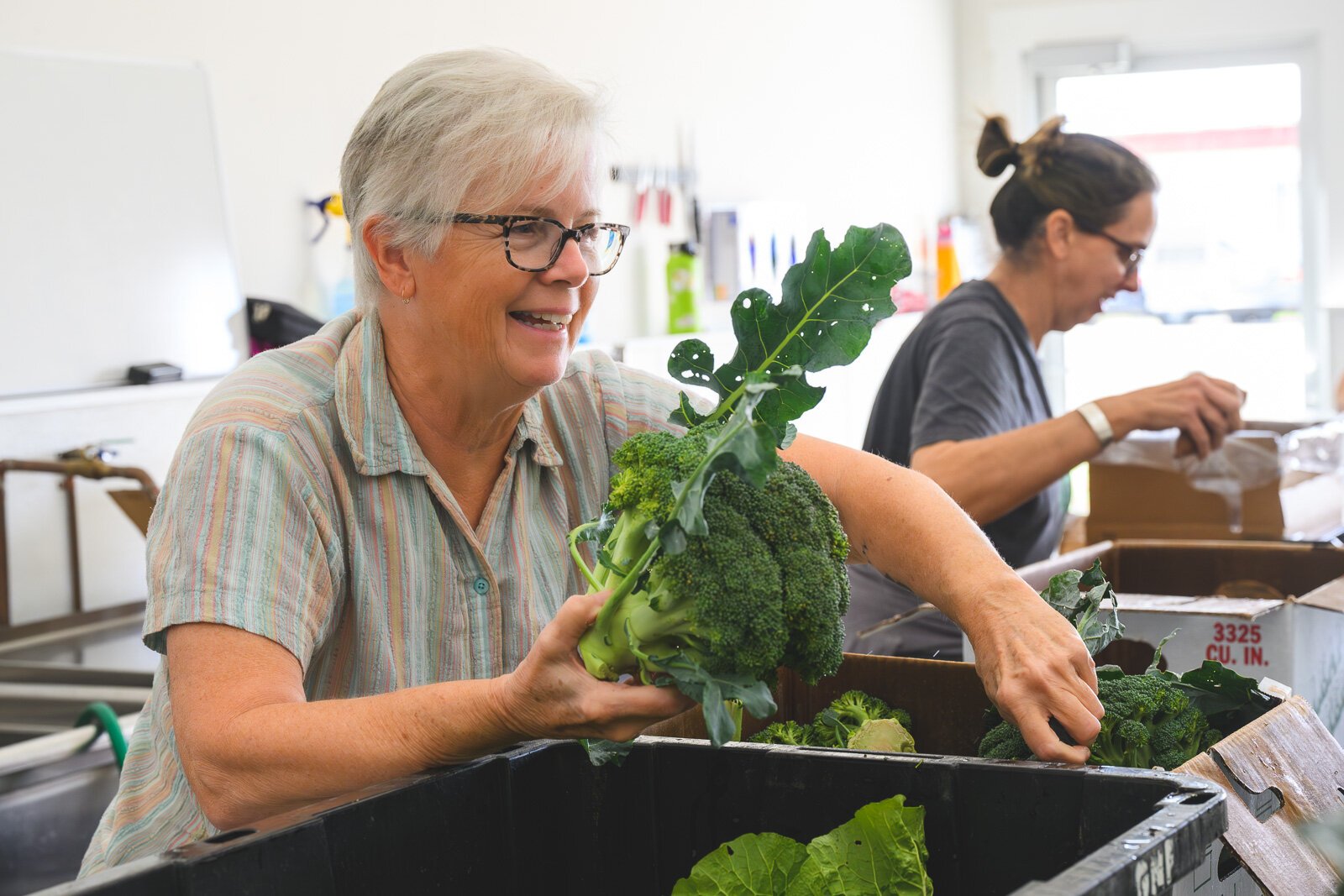
Volunteers Eileen Latini and Vanessa Revelli pack produce boxes at The Farm at Trinity Health in Ypsilanti.
A hospital-based farm program growing food at locations in Ypsilanti and Pontiac, The Farm at Trinity Health will be able to expand its food-as-medicine programming for people with diet-related conditions when Michigan Medicaid ILOS dollars become available. Jae Gerhart, manager of farm programs for Trinity Health Ann Arbor, says the farm has a “braided funding model” including grants, philanthropic dollars, sales revenue, and community benefit spending from the Trinity Health system.
“Medicaid would add another funding stream, allowing us to serve more patients, particularly Medicaid patients who are experiencing food insecurity and a diet-related chronic illness,” Gerhart says.
In addition, Gerhart says that as Medicaid health plans begin funding produce prescription programs, people qualifying for them will be able to buy more produce from The Farm’s hospital-based farm stands in Pontiac and Ann Arbor.
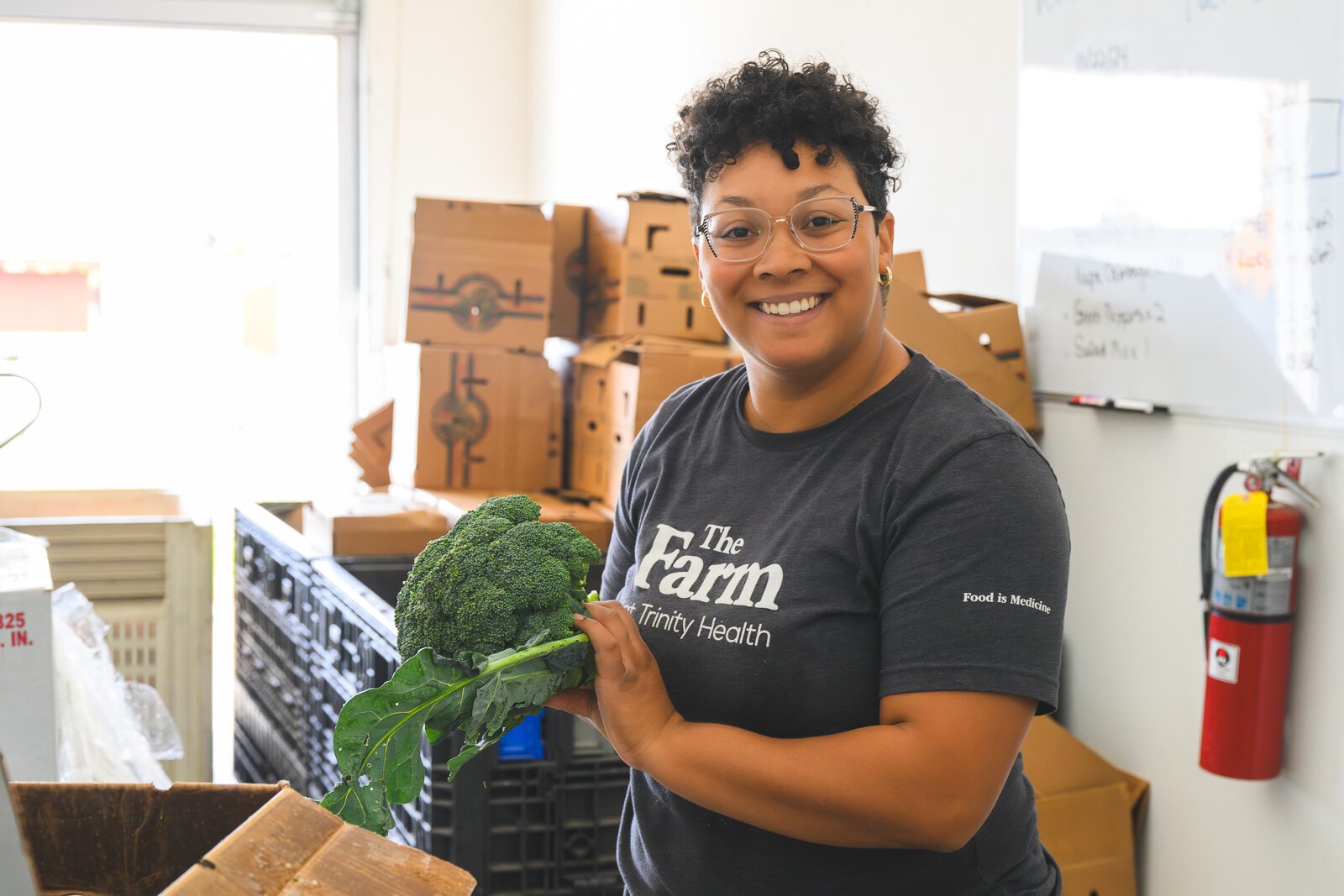
Alison Shores, food program coordinator at The Farm at Trinity Health in Ypsilanti, packs produce boxes.
“The Farm is uniquely positioned to get that beautiful, good, healthy, local, premium produce to the people who need it most and provide education in partnership with our dietitians, our recipes newsletter, and cooking demos,” Gerhart says. “It’s a well-rounded package that we can offer to people with the ultimate goal of preventing folks from going to the hospital with diet-related diseases.”
First food, then other health determinants
Funding nutrition programs is Michigan Medicaid’s first foray into an ILOS approach that addresses the social determinants of health — and could open up opportunities for Medicaid to fund other programs that address needs impacting health.
“I think there’s a lot of opportunity to look at using our Medicaid funds in a much more proactive way and get more at the root causes of health problems and health disparities,” Cassidy says.
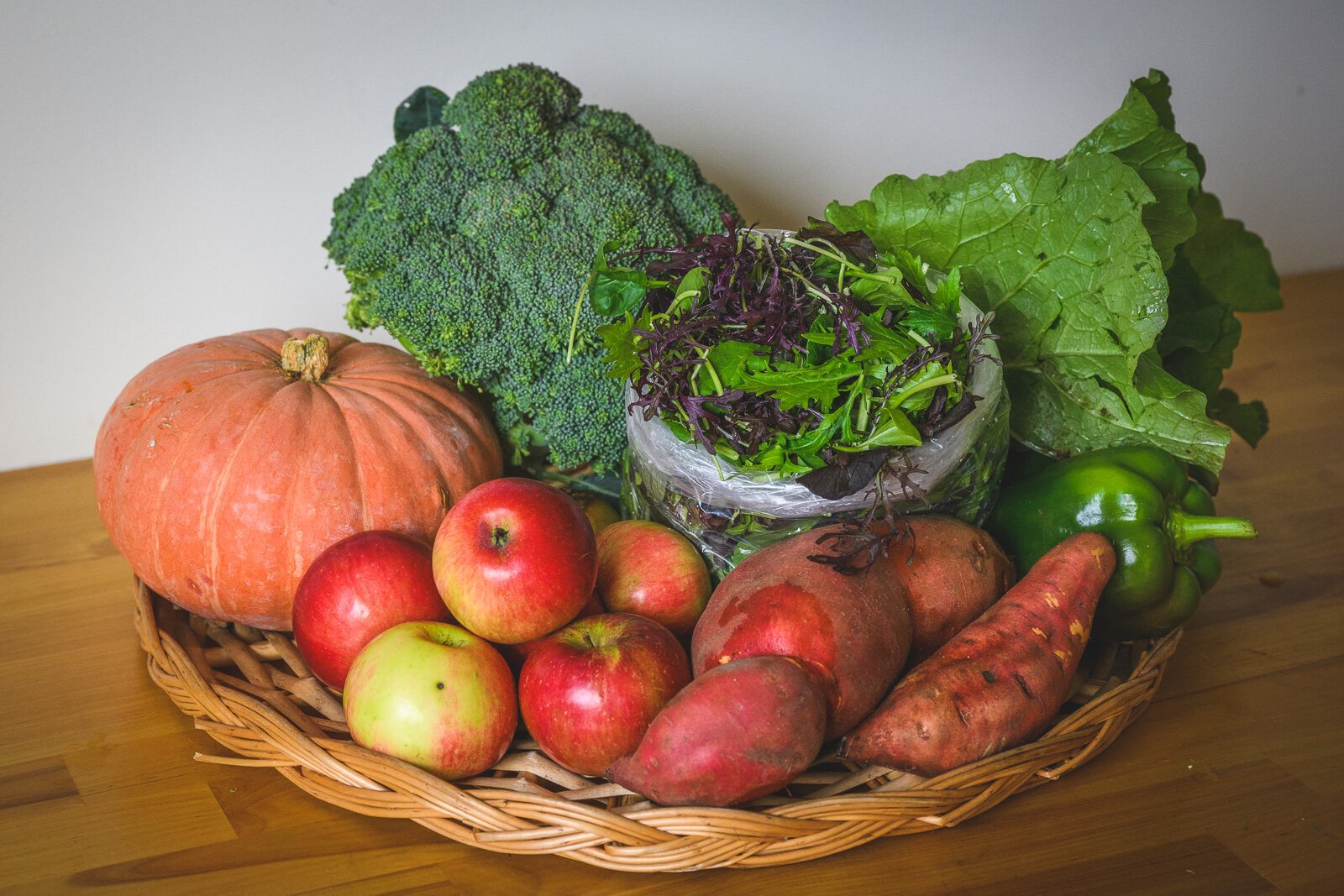
Produce at The Farm at Trinity Health in Ypsilanti.
Currently, Medicaid health plans are required to screen enrollees to identify health-related social needs, connect enrollees to community supports, and monitor whether they receive needed services to address them.
“Medicaid use of ILOS funding is one of many steps towards integrating more social-determinant-of-health-related activities within our Medicaid plans,” Commey says. “We may continue to see an expansion of ILOS programs in future years to support housing, transportation assistance, and other interventions that improve access to care and address the non-medical needs that are directly affecting health outcomes for our beneficiaries.”
Estelle Slootmaker spends most workdays as a journalist and book editor. She also writes poetry and has two books underway: her great great grandmother’s memoir of childhood on Mackinac Island and a children’s picture book. You can contact her at Estelle.Slootmaker@gmail.com.
The Farm at Trinity Health photos by Doug Coombe. All other photos courtesy of the subjects.




